 Petzlover
Petzlover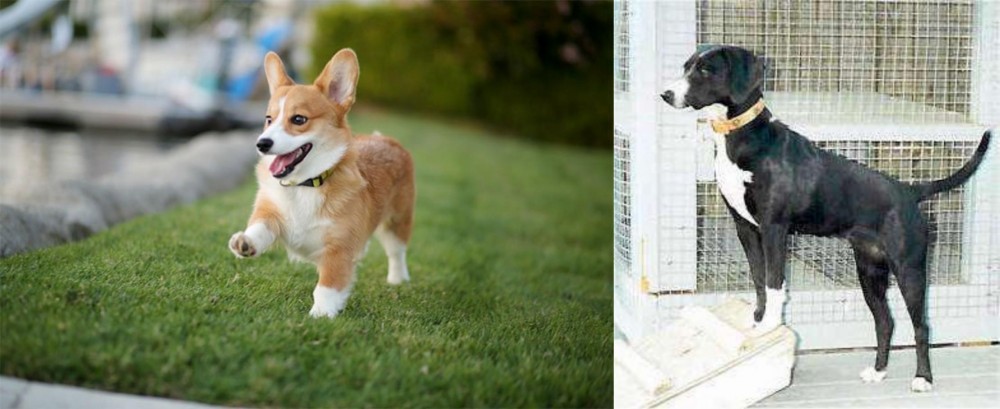 Corgi is originated from United Kingdom but Stephens Stock is originated from United States. Corgi may grow 20 cm / 7 inches shorter than Stephens Stock. Corgi may weigh 44 kg / 97 pounds lesser than Stephens Stock. Both Corgi and Stephens Stock has same life span. Both Corgi and Stephens Stock has almost same litter size. Both Corgi and Stephens Stock requires Low Maintenance.
Corgi is originated from United Kingdom but Stephens Stock is originated from United States. Corgi may grow 20 cm / 7 inches shorter than Stephens Stock. Corgi may weigh 44 kg / 97 pounds lesser than Stephens Stock. Both Corgi and Stephens Stock has same life span. Both Corgi and Stephens Stock has almost same litter size. Both Corgi and Stephens Stock requires Low Maintenance.
 Known as a cattle herding dog breed, the Corgi hails from Pembrokeshire, Wales. You get 2 breeds – the Cardigan Welsh Corgi and the Welsh Corgi.
Known as a cattle herding dog breed, the Corgi hails from Pembrokeshire, Wales. You get 2 breeds – the Cardigan Welsh Corgi and the Welsh Corgi.
The word ‘Korgi’ actually means ‘dwarf dog’. According to some, the small dog’s history goes back as far as 1107AD, but when you start doing research, you find that the Pembroke Welsh Corgi doesn’t have a traceable breed history.
The Pembrokeshire Corgi was officially recognized by the Kennel Club in the United Kingdom in 1934 and is a breed separate from the Cardiganshire Corgi.
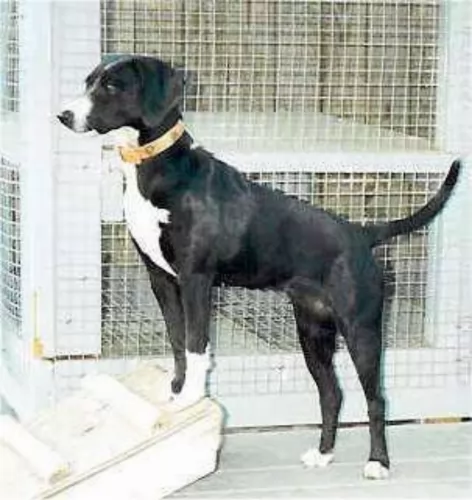 The Stephens Stock is a member if the Cur dog breeds. They are a scent hound bred in southeastern Kentucky by the Stephen’s family. For generations the dogs were simply known as the “little black dog”. The Cur breeds are dogs with a mixture of ancestry and the Stephens Cur is no different. However, the name Cur now means a working dog from the South in the United States. They were known as hunting and guard dogs, chasing wild boar, squirrel and raccoon. They were also called the Mountain Curs throughout Kentucky, Tennessee and Virginia.
The Stephens Stock is a member if the Cur dog breeds. They are a scent hound bred in southeastern Kentucky by the Stephen’s family. For generations the dogs were simply known as the “little black dog”. The Cur breeds are dogs with a mixture of ancestry and the Stephens Cur is no different. However, the name Cur now means a working dog from the South in the United States. They were known as hunting and guard dogs, chasing wild boar, squirrel and raccoon. They were also called the Mountain Curs throughout Kentucky, Tennessee and Virginia.
These mountain working dogs came close to extinction by the 1940’s but four separate breeders set out to save the Mountain Curs. They were the founders of the Mountain Cur Club and involved Woody Huntsman of Kentucky, Carl McConnel of Virginia, Dewey Ledbetter of Virginia and of course Hugh Stephens of Kentucky. Later the name of the club was changed to the Original Mountain Cur Breeders Association or OMCBA. The Mountain View Cur, the Treeing Cur and the Stephens Stock Cur were the results of their efforts.
In the 1970’s Stephen’s decided that his Cur was different from the original Mountain Curs and should be a separate breed. He formed the Stephen’s Breeders Association and the breed was recognized as distinct from other Curs. However, it was not recognized by the UKC (United Kennel Club) until 1998.
 The Corgi is a small to medium sized dog, standing at 25 to 30cm and weighs between 10 to 14kg.
The Corgi is a small to medium sized dog, standing at 25 to 30cm and weighs between 10 to 14kg.
The coat of the Corgi is fairly short to medium length and is thick. You’ll find him to be available in colors such as red, fawn, black and tan and with white markings.
He has a sharp, intelligent face with an amicable expression. Looking much like a fox with short legs, he has a long, low-set body body and is a sturdy dog. His ears also stand erect and he has a docked tail.
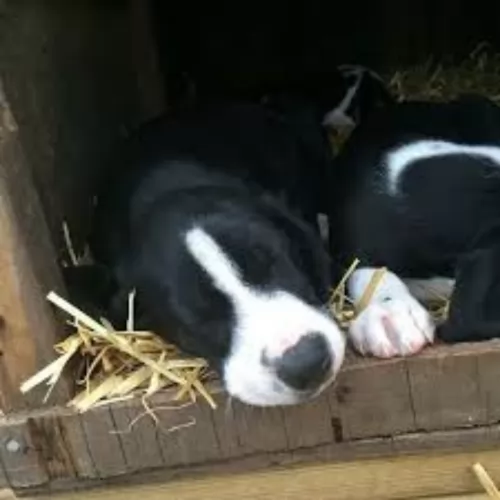 The Stephens Stock Cur is a breed of medium size, dark dogs – either very dark grey or black. Their heads are domed, and the muzzle is short with dark eyes. The breed’s chest is broad and deep with a neck of medium length and either a rough or smooth coat. They are smaller than the other Curs like the Black Mouth Cur or the Mountain View Cur.
The Stephens Stock Cur is a breed of medium size, dark dogs – either very dark grey or black. Their heads are domed, and the muzzle is short with dark eyes. The breed’s chest is broad and deep with a neck of medium length and either a rough or smooth coat. They are smaller than the other Curs like the Black Mouth Cur or the Mountain View Cur.
They are strong and capable of treeing their prey. Their body is longer than it is high, and they have powerful and long legs. Their appearance is sleek and elegant. The nose is dark and square, and their stance is alert and that of a watchdog. This is an athletic hunting dog that is aggressive in the field and chilled at home.
 The sweet little Corgi is well known with his association with Britain’s Queen Elizabeth who has always loved these dogs with their long bodies and short legs. But while the Corgi may well be associated with royalty, he isn’t too snooty by any means to be your pet.
The sweet little Corgi is well known with his association with Britain’s Queen Elizabeth who has always loved these dogs with their long bodies and short legs. But while the Corgi may well be associated with royalty, he isn’t too snooty by any means to be your pet.
He has got a wonderful personality, and he is just waiting to be allowed into your household where he will prove to be a loving, devoted companion and friend.
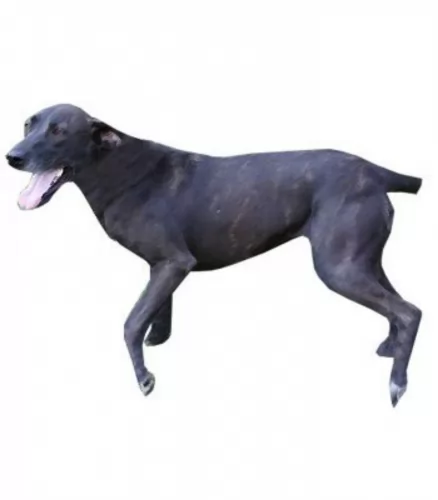 1. Children friendliness - They are tenacious on the hunt but once at home they love children.
1. Children friendliness - They are tenacious on the hunt but once at home they love children.
3.Adaptability They are adaptable if you can get them the exercise, they need every day. They won’t do well in an apartment without going to play and run somewhere else every day.
 A corgi, when he is well looked after, can live to be anything from 12 to 15 years of age. However even this sturdy dog may well be susceptible to some of the more common dog illnesses, such as hip dysplasia and degenerative myelopathy.
A corgi, when he is well looked after, can live to be anything from 12 to 15 years of age. However even this sturdy dog may well be susceptible to some of the more common dog illnesses, such as hip dysplasia and degenerative myelopathy.
Also you have to be careful with your Corgi and make sure that he doesn’t gain weight as this weight gain can bring with it a host of health complications.
Hip dysplasia with your Corgi is about an abnormal joint structure where the bones lose contact with each other. This parting of the bones is known as subluxation, and it is this subluxation that can cause your pet pain and discomfort and lead to osteoarthritis.
This disease isn’t reserved for old dogs either, and some young dogs can begin to show signs of this disease before they reach their first birthday. Without taking your dog to the vet and having medical intervention, your pet may eventually be unable to walk.
It is so sad when Degenerative Myelopathy invades your pet as it is a devastating disease watching your pet become paralyzed. The disease seems to come on when then dog is between 8 and 14 years of age where your pet loses co-ordination in the hind limbs, getting worse until he can no longer walk. Often your dog can no longer control his urine output.
There are no real treatments that have stopped the progression of the disease and your vet may suggest treatments that can make your pet more comfortable You vet may compassionately suggest your dog be put down, particularly for those people who can’t afford treatment.
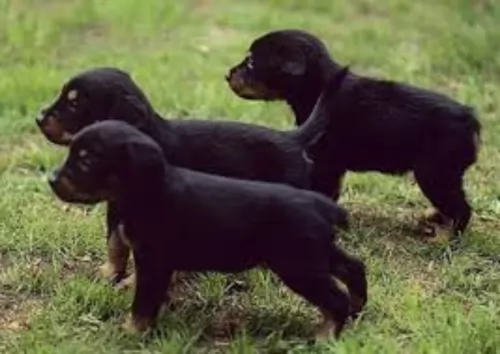 The Stephens Stock Cur is a fairly healthy breed, fairly isolated in the hills and mountains of Kentucky and Tennessee. They are prone to a few health conditions but there are no genetic and breed specific issues.
The Stephens Stock Cur is a fairly healthy breed, fairly isolated in the hills and mountains of Kentucky and Tennessee. They are prone to a few health conditions but there are no genetic and breed specific issues.
• Ear and Eye Infections. Keep them clean and keep debris out of both ears and eyes after hunting.
 The Corgi isn’t a particularly heavy shedder, so a brush down twice a week will be excellent for his thick coat. And of coarse he will thrive on the attention given to him during the brushing session.
The Corgi isn’t a particularly heavy shedder, so a brush down twice a week will be excellent for his thick coat. And of coarse he will thrive on the attention given to him during the brushing session.
Corgis love walks and sniffing around as they go along. They’re energetic dogs so you’ll need to include him in your daily walks which he just loves, and include him in some ball games.
Corgis may be short in stature but they are robust dogs – sturdily built. They are active dogs and can use up a lot of calories. They will certainly require a diet that features good quality protein.
Feed your Corgi a good quality food designed for special life stages – puppy, adult, pregnant female, senior dog and also dogs with illnesses.
Most Corgis do well having 2 meals of kibble a day. Puppies usually eat 4 meals a day until they are old enough to move onto an adult feeding schedule. Include cooked rice, meat and vegetables in his diet as well as raw meat from time to time and ensure there is always a bowl of clean, cool water available.
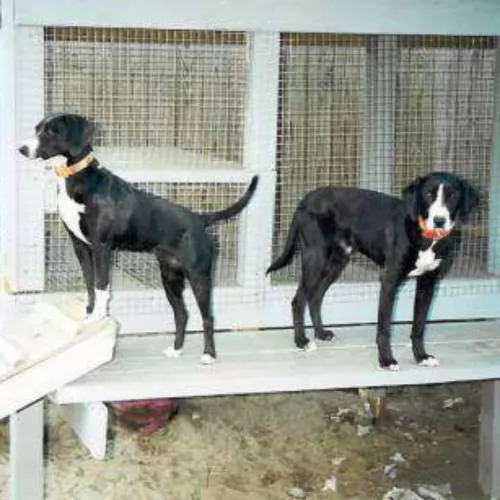 1.Feeding the puppy -Feed puppies a quality food desired for medium breed, high energy dogs. Puppies should eat 3 times a day about a total of 2 cups.
1.Feeding the puppy -Feed puppies a quality food desired for medium breed, high energy dogs. Puppies should eat 3 times a day about a total of 2 cups.
2.Feeding the adult Feed a high quality dog food with plenty of protein and designed for medium size dogs. Feed a total of 3 cups over 2 meals a day.
4. Games and Exercises – This is a very high energy treeing hunting dog with remarkable speed and agility. They need exercise – both physical and mental. One walk a day will not do it for these dogs. Have a fenced in yard or take them to organized activities like field trials, agility, flyball, hunting, search and rescue or barn hunt. They love to hunt with their people.